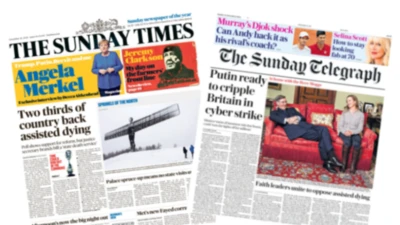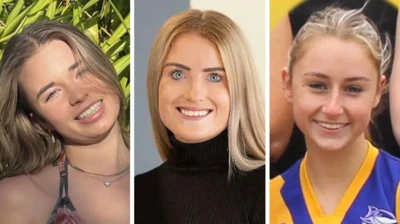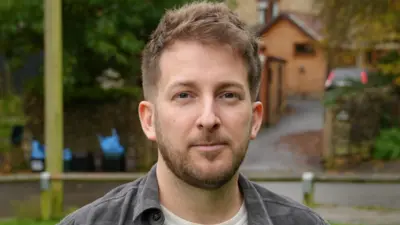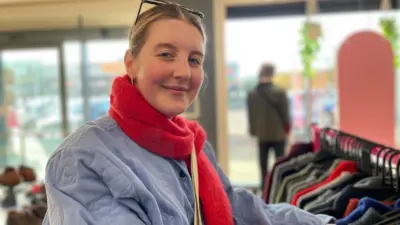We've updated our Privacy and Cookies Policy
We've made some important changes to our Privacy and Cookies Policy and we want you to know what this means for you and your data.
Labour under fire over second top civil service job
Image source, Getty Images
- Author, Phillip Kemp
- Role, Political reporter
The government is facing questions about a second appointment to a senior civil service role of a person linked to previous donations to the Labour Party.
Emily Middleton was named a director general in the Department for Science, Innovation and Technology (DSIT), where the secretary of state is Peter Kyle.
She was previously a partner at consultancy firm Public Digital, which paid for her secondment to Mr Kyle's office in opposition - a donation in kind of more than £65,000.
The Tories have described it as a "growing scandal of appointing donors to top civil service jobs".
A government spokesperson said the appointment was made " in line with the civil service rules on recruitmentÔÇØ.
The Tories have asked the government's top civil servant what was known about the donations when Ms Middleton got the job and what role Mr Kyle played in that process.
Separately, Chancellor Rachel Reeves is under pressure to say whether she was involved in the appointment of former banker and Labour donor Ian Corfield as director of investment at the Treasury.
In opposition, Labour repeatedly accused the Conservatives of "cronyism" in appointing their political friends to public bodies.
Downing Street has also been approached for comment on whether the prime minister authorised Ms Middleton's appointment and whether he was aware of her previous employers' donations to Labour.
According to , "the prime minister authorises all appointments at DG level and aboveÔÇØ.
In a letter sent to Mr Case on 26 July and , Conservative shadow science secretary Andrew Griffith raised the issue of civil service impartiality.
He suggested Ms Middleton's appointment appeared to set a "new and clear precedent of a Minister making a direct appointment, to a senior civil service role, of an individual whose employer recently made a substantial political donation".
, Tory leadership contender James Cleverly described Labour's civil service recruitment practices as "very questionable", and alluded to Sue Gray, Sir Keir Starmer's chief of staff.
"Funny how a senior civil servant joins Labour, then a load of Labour people get civil service appointments!" he wrote.
According to Ms Middleton's LinkedIn profile, she worked "on secondment to the Labour Party advising on digital public services reform" from January to July.
She was previously seconded to Labour Together, a think tank close to Sir Keir.
Her new job at DSIT is as director general of digital centre design.
Directors general are among the most senior ranks in the civil service, earning between £125,000 and £208,100 a year.
In the cases of Ms Middleton and Mr Corfield, some Conservatives have questioned whether the Civil Service Commission (CSC), which regulates appointments, was aware of previous donations to Labour figures.
But the commission told the ┤¾¤¾┤½├¢ this would not be an issue it would take into account.
'Exceptions'
"It's for the [government] department to consider the propriety and background checks," a spokesperson said.
"Exceptions" to the normal appointment process have been granted more than 100 times in the past 12 months, and can apply when external candidates are involved.
In these circumstances, the CSC focuses on "the business case", the spokesperson said.
They previously told the ┤¾¤¾┤½├¢: "All appointments by exception are reminded of their responsibilities under the Civil Service Code, external to act with impartiality, objectivity, integrity and honesty."
There are no rules automatically blocking someone from being appointed to a civil service role because of a political donation.
According to the , ministers "must ensure that no conflict arises, or could reasonably be perceived to arise, between their public duties and their private interests, financial or otherwise".
"It is the personal responsibility of each Minister to decide whether and what action is needed to avoid a conflict or the perception of a conflict, taking account of advice received from their Permanent Secretary and the Independent Adviser on MinistersÔÇÖ interests."
Top Stories
More to explore
Most read
Content is not available








